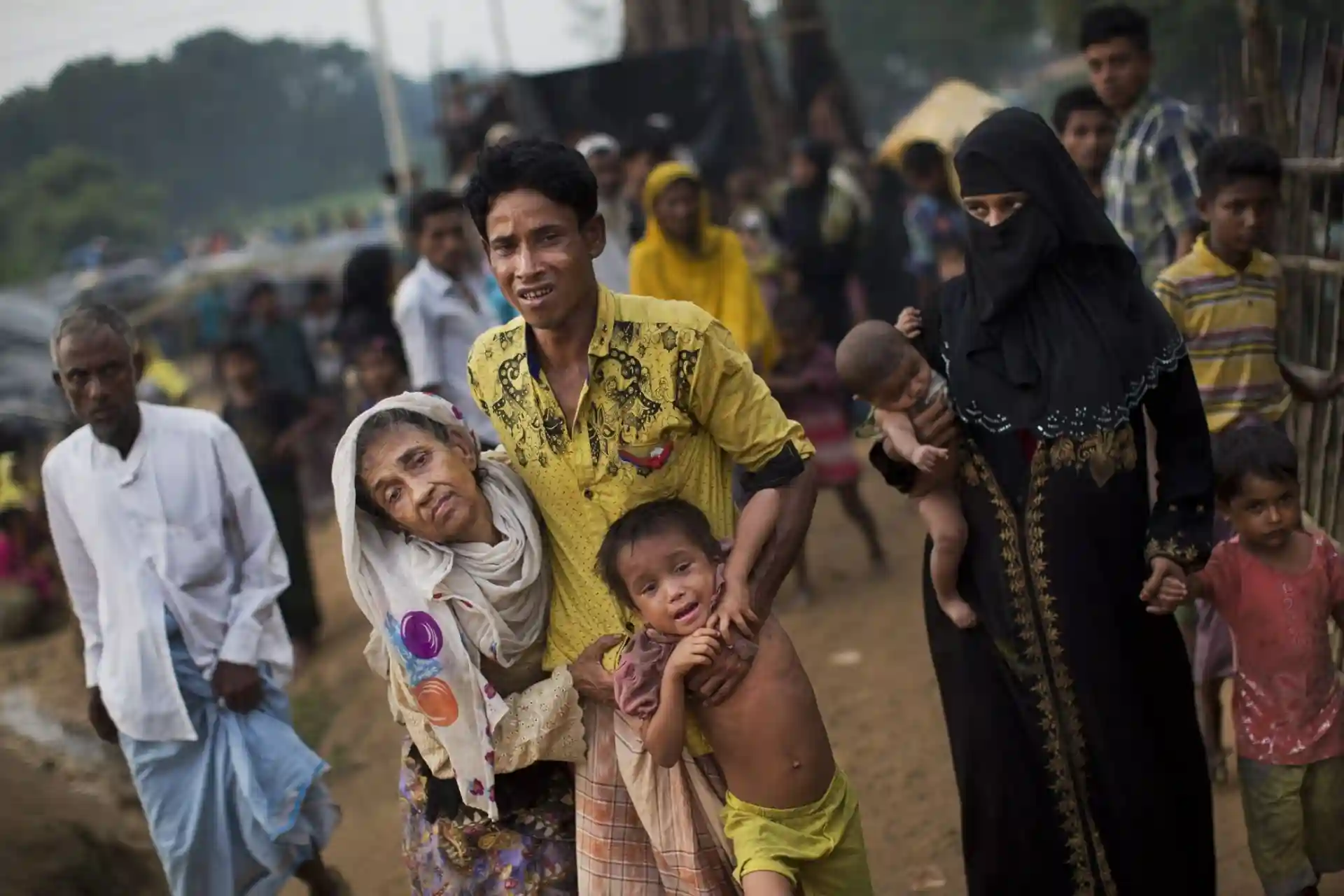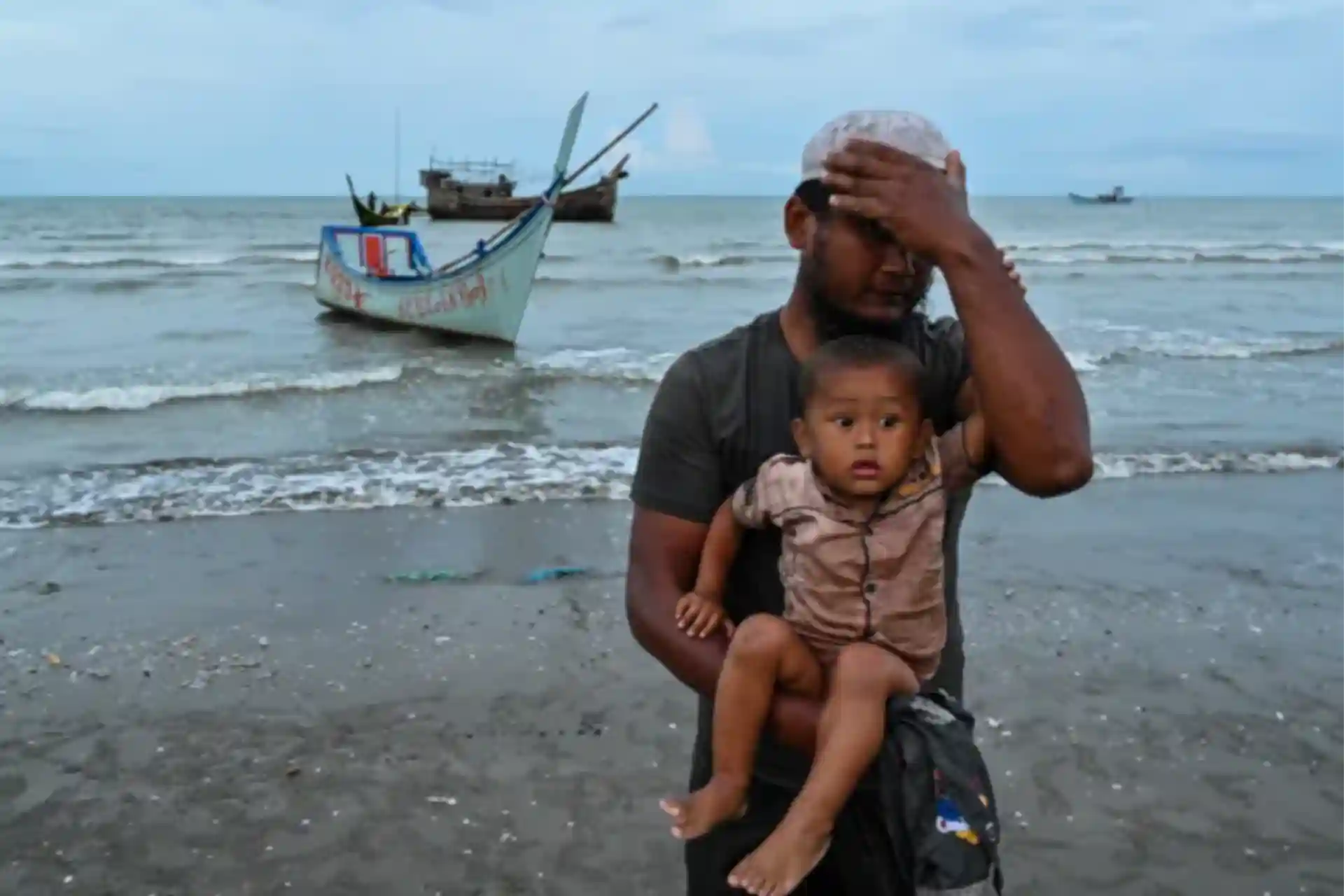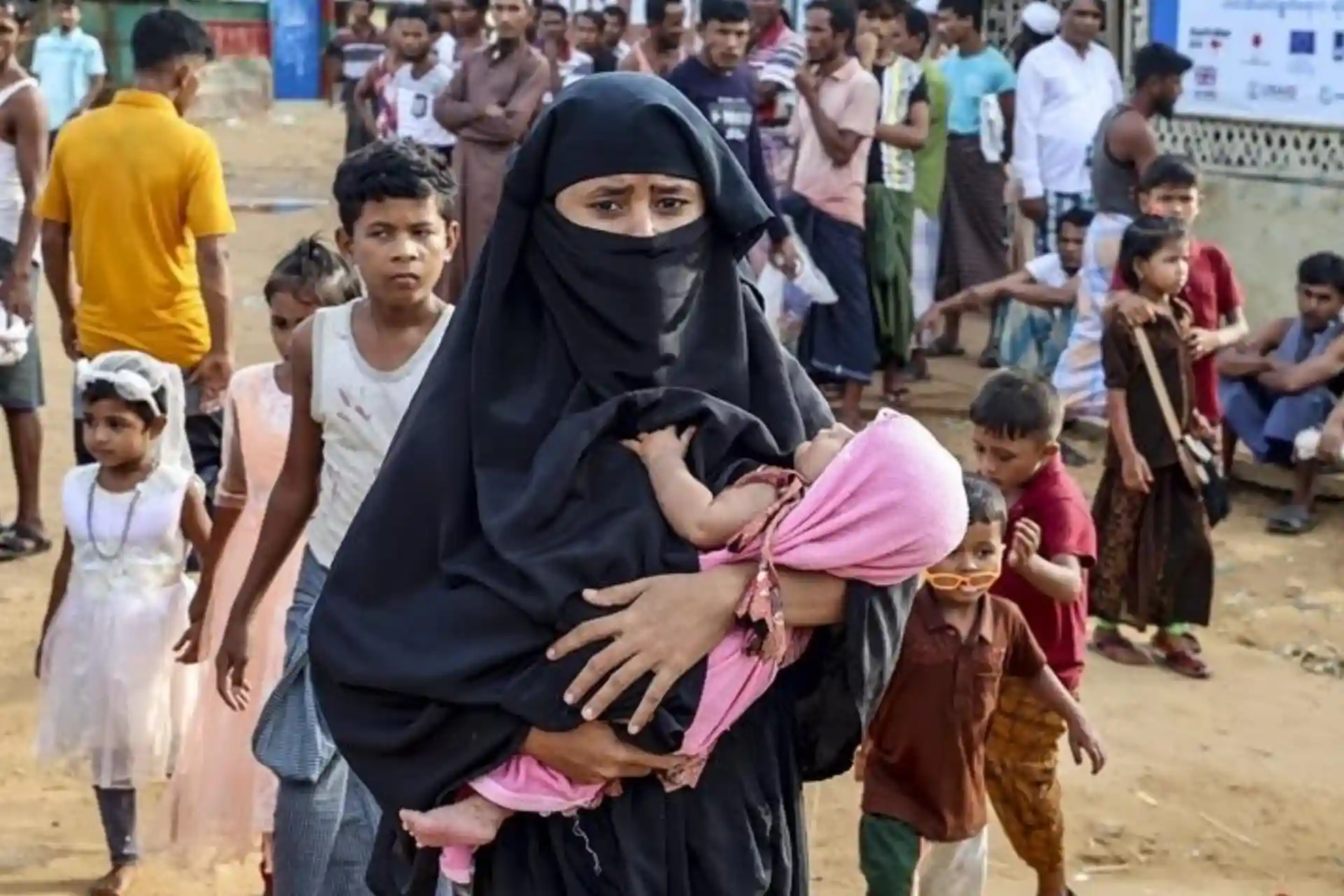Rohingyas are in danger again in their homeland! They should not be forgotten
Muslims in Myanmar's Rakhine state remain one of the most persecuted and discriminated groups in the world. They were victims of genocide by Myanmar's military junta in 2012 and 2017, and later became the focus of international attention as refugees who fled the violence to countries such as Bangladesh.
More than 1.2 million Rohingya Muslims currently live outside Myanmar, making them one of the largest stateless groups in the world.
Years of statelessness compounded their plight, and this impoverished, socially isolated community has been unable to return to Myanmar for fear of ethnic cleansing by a brutal military junta known for its crimes against humanity. However, they should not be forgotten.
The remaining 600,000 Rohingya Muslims in Myanmar are suffering from fire attacks by the Arakan Army (AA), an ethnic armed group that protects the interests of the Buddhist Rakhine State, which is fighting the Tatmadaw for state autonomy. The Tatmadaw is the Burmese military junta that rules the country.
Last week, the Arakan Army announced that it had taken control of the town of Buthidaung. Most of those fleeing for their lives are Rohingya, whose lives are increasingly at risk.
Given the imminent and emerging threat of genocide and ethnic cleansing against the Rohingya, the international community must act now to protect this vulnerable group.
The origin of discrimination
Such attacks in Myanmar in 2024 are not the first to target Rohingya Muslims. This month's attacks are the result of years of apartheid-like conditions and statelessness perpetrated against the Rohingya population by the Burmese government and the Bamar/Buddhist group.
The Rohingya, a predominantly Muslim ethnic group, were stripped of Burmese citizenship in 1982 by the government because they did not belong to any of the 135 ethnic groups legally recognized by the state.
On the contrary, they were called "Bangladeshi". The population's statelessness and lack of identity make them increasingly vulnerable, subjecting them to systematic targeting and discrimination, denying them rights to education, access to health care, reproductive rights, and legal protection from ethnic violence.
In order to strengthen Buddhist nationalism in Myanmar, the genocide of 2017 and the massacre of Rohingya Muslims in the 2012 uprising were carried out at a mind-numbing level.
This brought the issue into the international spotlight, with calls from the International Criminal Court (ICC), the United Nations, journalists and governments to hold the junta accountable for its crimes.
After the bloodshed in 2017, some 25,000 Rohingya were killed, 18,000 women and children were sexually abused, 116,000 were tortured, and more than 700,000 fled Rakhine to neighboring countries such as Bangladesh.
Despite the International Court of Justice ordering the military junta to prevent genocidal atrocities against the Rohingya in 2020, no criminal charges have been brought against the military, which has maintained its dominance in Myanmar's politics, as a totalitarian and fascist organization.
Intervention status
The international community must also address the issue of the Rohingya refugees while restoring justice to the ethnically cleansed group. Since 2017, most of the Rohingya population, who have not been able to return to their homes, remain as refugees in countries such as Bangladesh.
The conditions created for the refugees are often deplorable. For example, in the Kutupalong camp in Bangladesh, Rohingya Muslims continue to suffer from chronic hunger and substandard sanitation. Any attempt to repatriate them is thwarted by the Myanmar military's brutal genocide.
The world needs to pay more attention to this new violence in Myanmar, or it could lead to further ethnic cleansing of the oppressed Rohingya population.
This month, the Rohingya accused the Buddhist Arakan Army of setting fire to Rohingya villages, shelters, homes, hospitals and schools, mainly in Butidaung, a charge the Arakan Army denied.
However, the desire to gain territorial control in the ongoing struggle for the independence of the state initially led the military to issue an ultimatum to Rohingya villagers to vacate the city. This was followed by arson attacks, and many people were displaced and left in poverty.
Alarm bells are already being sounded about the latest violence by human rights organizations such as Human Rights Watch and the Special Advisory Council on Myanmar, while a former UN special problems analysis group is monitoring the situation in the country after the 2021 military coup.
It is time for organizations like the International Court of Justice to file criminal cases and issue arrest warrants against the military and leaders in the Arakan Army.
Accountability
The war-torn Rohingya Muslims have not received any justice, except when the judges of the International Court of Justice in 2019 approved a full investigation into crimes against humanity committed by the Myanmar military. However, no arrest warrant was issued.
This is partly because the military regime in Myanmar is hindering the investigation of war crimes. In addition, Myanmar is not a party to the Rome Statute, which prevents criminal proceedings against the junta.
But there are other ways to prosecute and issue arrest warrants.
Simply put, ICC member states must ensure that states that are not party to the statute, such as Myanmar, are held accountable based on Article 14 of the Rome Statute.
The use of Article 14 provides broad powers to issue arrest warrants and prosecute leaders of regimes not covered by the ICC Statute, including the military.
Doors of opportunity open
A similar incident happened recently.
Last week, International Criminal Court Prosecutor Karim Khan issued arrest warrants for Israeli Prime Minister Benjamin Netanyahu and Defense Minister Yoav Gallant, who are accused of genocide in Gaza.
Khan argued that the ICC's jurisdiction over Israel's actions rests on the Rome Statute, which prohibits the starvation and extermination of Palestinian civilians.
Given their involvement in crimes against humanity, the military in Myanmar should suffer the same fate as Israel. Arrest warrants have previously been sought by organizations such as the Burmese Rohingya in the UK.
But it is crucial that the International Criminal Court itself issues an arrest warrant against military leader Ming Aung Liang and his cohorts for genocide against oppressed groups, including executions, infanticide, arson, and forced exile.
The first important step
It is clear as day that neither Myanmar nor Israel will submit themselves to the International Criminal Court for prosecution. Tatmadov also does not want to be brought to international responsibility like Tel Aviv.
However, given the long-standing indifference to the Rohingya population, the Court has an opportunity to do important work and ensure that future crimes against humanity are not treated with indifference.
The impunity for the junta's crimes has had an enormous negative impact on the Rohingya population.
In general, we should not forget the extent of the genocide committed against them and the situation in 2024 - now.



